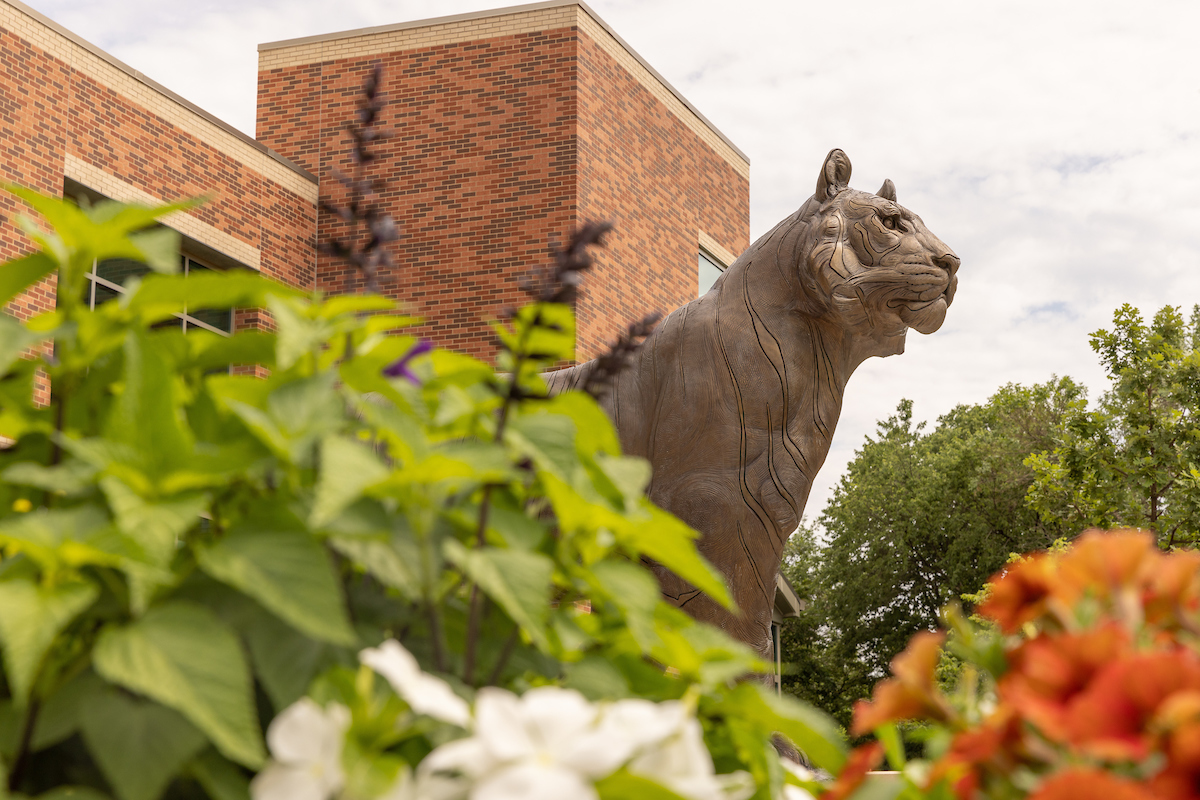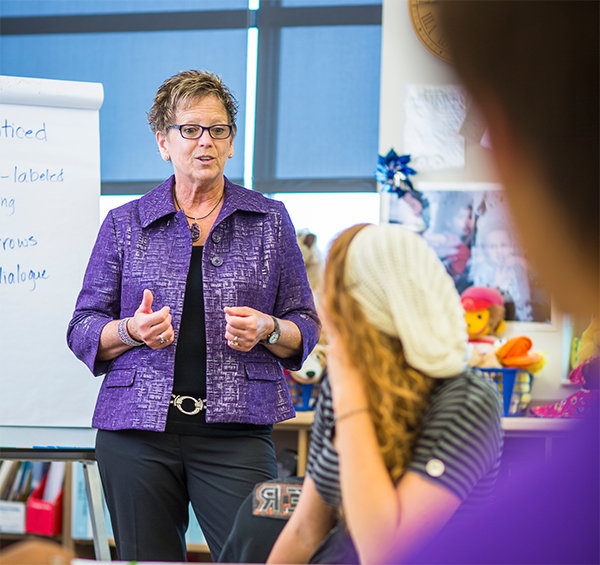
Start Your Education Degree Early with Doane's Dual Credits
Doane University has developed a pathway to support future teachers and educators. The Education pathway is designed for high school students to begin earning college credit towards their bachelor’s degree in Early or Secondary Education and lessen the overall time to earn your degree. Students at any public or private Nebraska high school or homeschool student may participate in the Education pathway.
Along with the Education courses, Doane encourages students to complete the recommended dual-credit courses within the Doane Core. Upon completion of the Education courses and dual-credit Doane Core you would have sophomore standing at Doane University, reducing your overall time and cost to getting you into the classroom.
Course Information
Foundations to Education (EDU 101)
A course designed to prepare future educators with a framework to understand the implications of multicultural education as they enter the classroom. Students focus on self-clarification in order to understand their own culture first before they are exposed to multiple perspectives. Through field experiences, writing, discussions and readings, students analyze their beliefs, attitudes and behaviors while preparing to become competent multicultural educators.
Introduction to Exceptional Children (EDS 207)
An introductory study of children with exceptional needs for the prospective special educator. Students examine the field of special education for an overview of relevant issues. At the completion of this course, students are able to relate significant historical and legal issues to the practice of teaching. Emphasis is placed on designing and adapting instruction and instructional learning environments to meet the diverse learning needs of students with exceptionalities. The student also participates in a field-based observation project.
Child, Youth & the Family (EDU 228)
A study of human development based on the theory that primary caregivers have the greatest influence on the growth and development of both children and adolescents. The course covers human development of children and youth with a strong orientation to the contexts of family, parenting styles, school programs, and other vehicles of socialization. Students participate in a filed-based observation project.
Instructional Technology (CMP 201)
A course consisting of a series of experiences related to using educational technology in the classroom. Teaching about technology, teaching with technology, and integrating technology in the classroom are topics of this course. Course experiences provide an awareness of the educational uses of technology and the skills necessary to use and integrate technology in the classroom. Competency will be demonstrated in the use of application software relevant to the classroom.
Practicum (EDU 211)
An examination of the primary education theories and social forces that have shaped American education with emphasis upon writers whose philosophical thought has had a particularly strong impact upon contemporary educational practices. Educational practices surveyed include the learning process, instructional design, teaching strategies, classroom management, diversity within the classroom, history and philosophy of education, and national/state K-12 content standards. The course includes clinical field experience in elementary, middle, and secondary schools. Course content provides exploratory activities for students to develop an interest in and commitment to teaching.
Sophomore Year
Fall
Foundations to Education
Spring
Child, Youth & the Family
Junior Year
Fall
Instructional Technology
Spring
Introduction to Exceptional Children
Senior Year
Fall
Practicum
Spring
Practicum
Total Credits:
15
Foundations to Education (EDU 101)
A course designed to prepare future educators with a framework to understand the implications of multicultural education as they enter the classroom. Students focus on self-clarification in order to understand their own culture first before they are exposed to multiple perspectives. Through field experiences, writing, discussions and readings, students analyze their beliefs, attitudes and behaviors while preparing to become competent multicultural educators.
Introduction to Exceptional Children (EDS 207)
An introductory study of children with exceptional needs for the prospective special educator. Students examine the field of special education for an overview of relevant issues. At the completion of this course, students are able to relate significant historical and legal issues to the practice of teaching. Emphasis is placed on designing and adapting instruction and instructional learning environments to meet the diverse learning needs of students with exceptionalities. The student also participates in a field-based observation project.
Child, Youth & the Family (EDU 228)
A study of human development based on the theory that primary caregivers have the greatest influence on the growth and development of both children and adolescents. The course covers human development of children and youth with a strong orientation to the contexts of family, parenting styles, school programs, and other vehicles of socialization. Students participate in a filed-based observation project.
Instructional Technology (CMP 201)
A course consisting of a series of experiences related to using educational technology in the classroom. Teaching about technology, teaching with technology, and integrating technology in the classroom are topics of this course. Course experiences provide an awareness of the educational uses of technology and the skills necessary to use and integrate technology in the classroom. Competency will be demonstrated in the use of application software relevant to the classroom.
Practicum (EDU 211)
An examination of the primary education theories and social forces that have shaped American education with emphasis upon writers whose philosophical thought has had a particularly strong impact upon contemporary educational practices. Educational practices surveyed include the learning process, instructional design, teaching strategies, classroom management, diversity within the classroom, history and philosophy of education, and national/state K-12 content standards. The course includes clinical field experience in elementary, middle, and secondary schools. Course content provides exploratory activities for students to develop an interest in and commitment to teaching.
Sophomore Year
Fall
Foundations to Education
Spring
Child, Youth & the Family
Junior Year
Fall
Instructional Technology
Spring
Introduction to Exceptional Children
Senior Year
Fall
Practicum
Spring
Practicum
Total Credits:
15


Get to know us even better
We'd love to tell you more about Doane. Just fill out the form below and one of our staff will reach out to you shortly.





